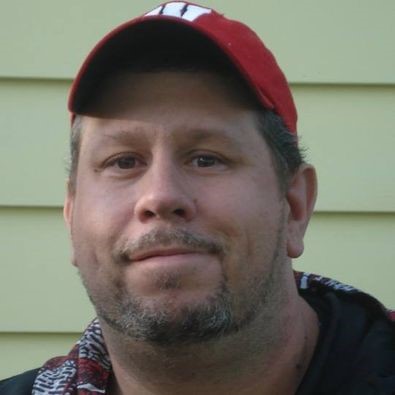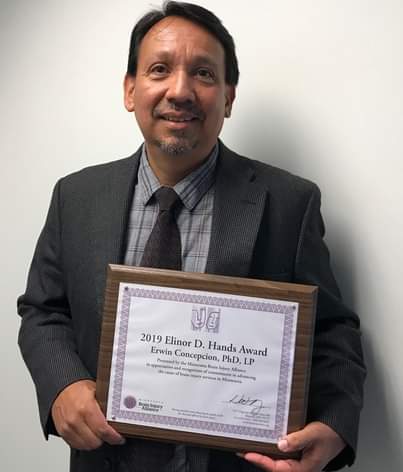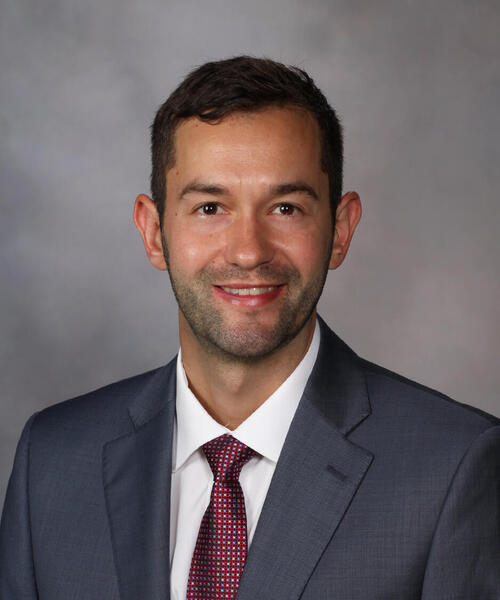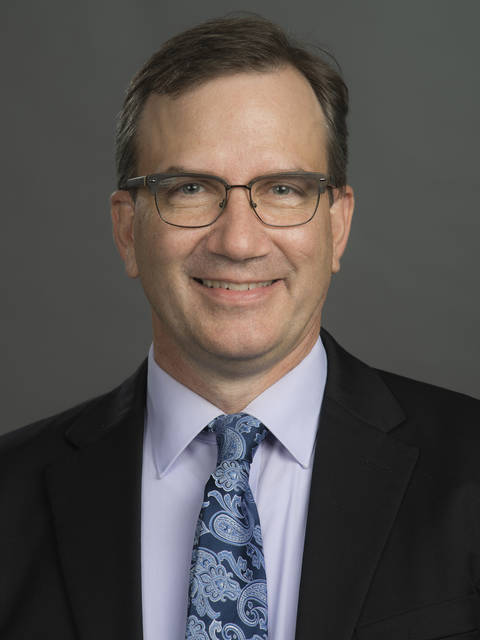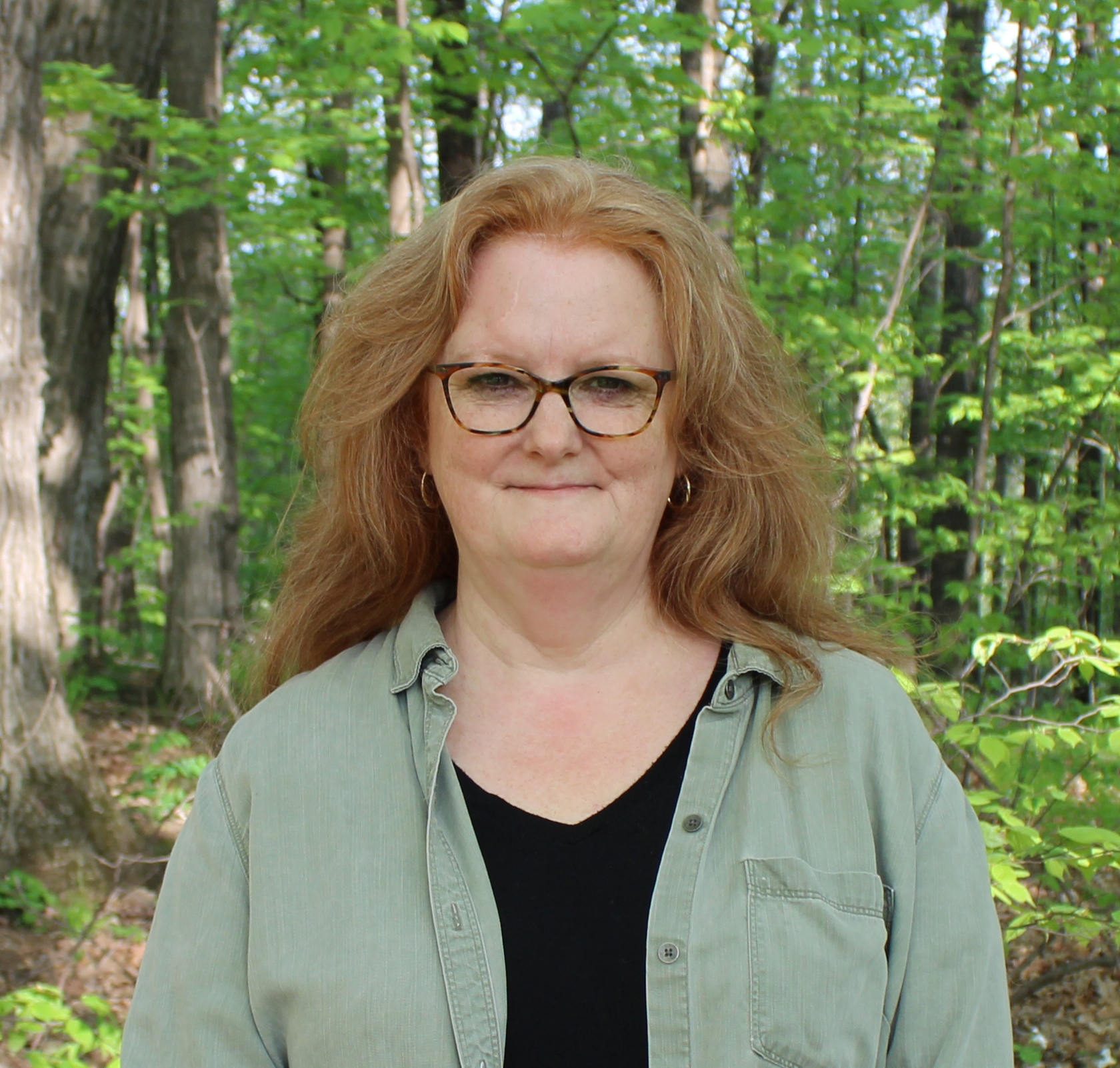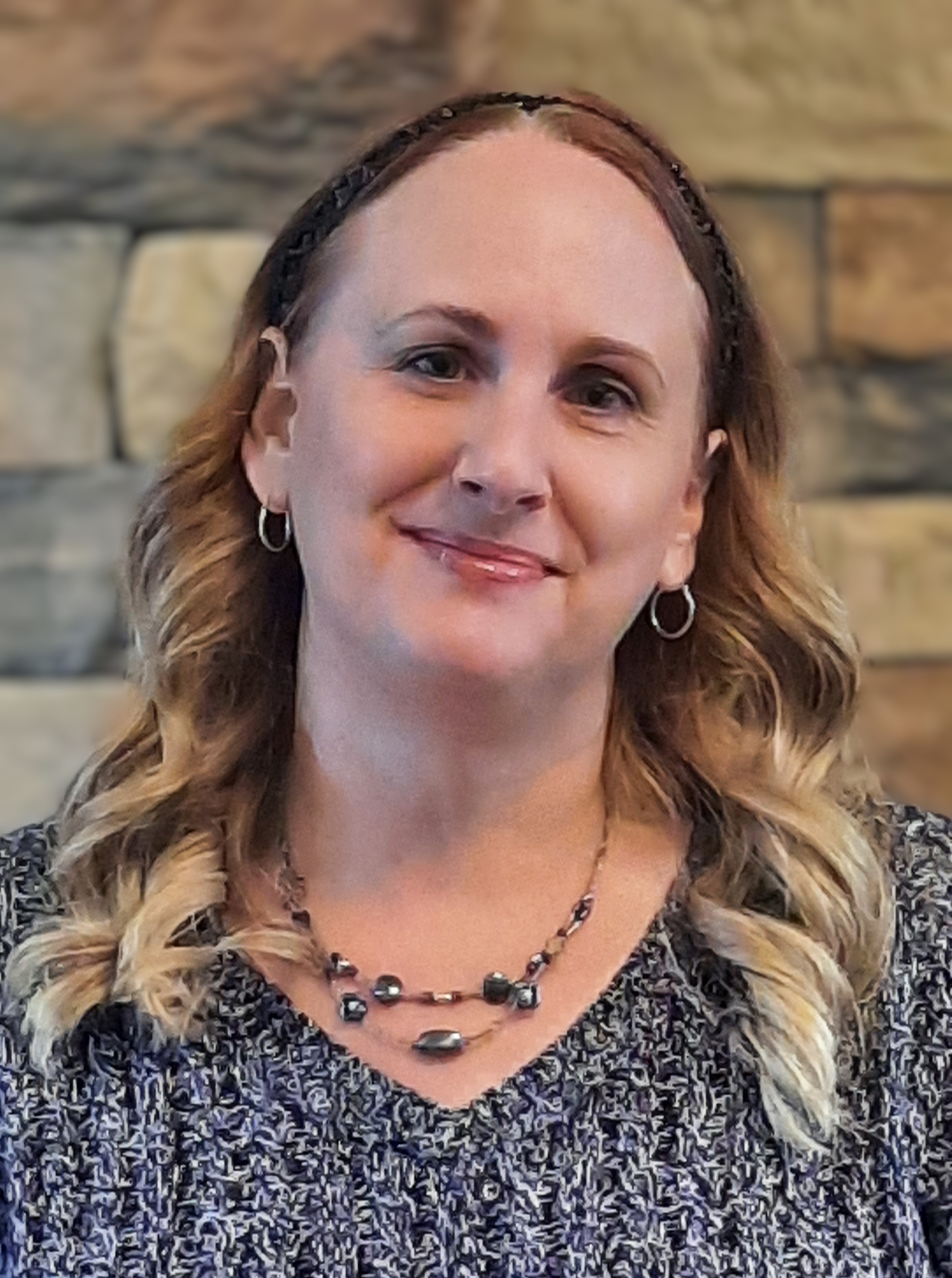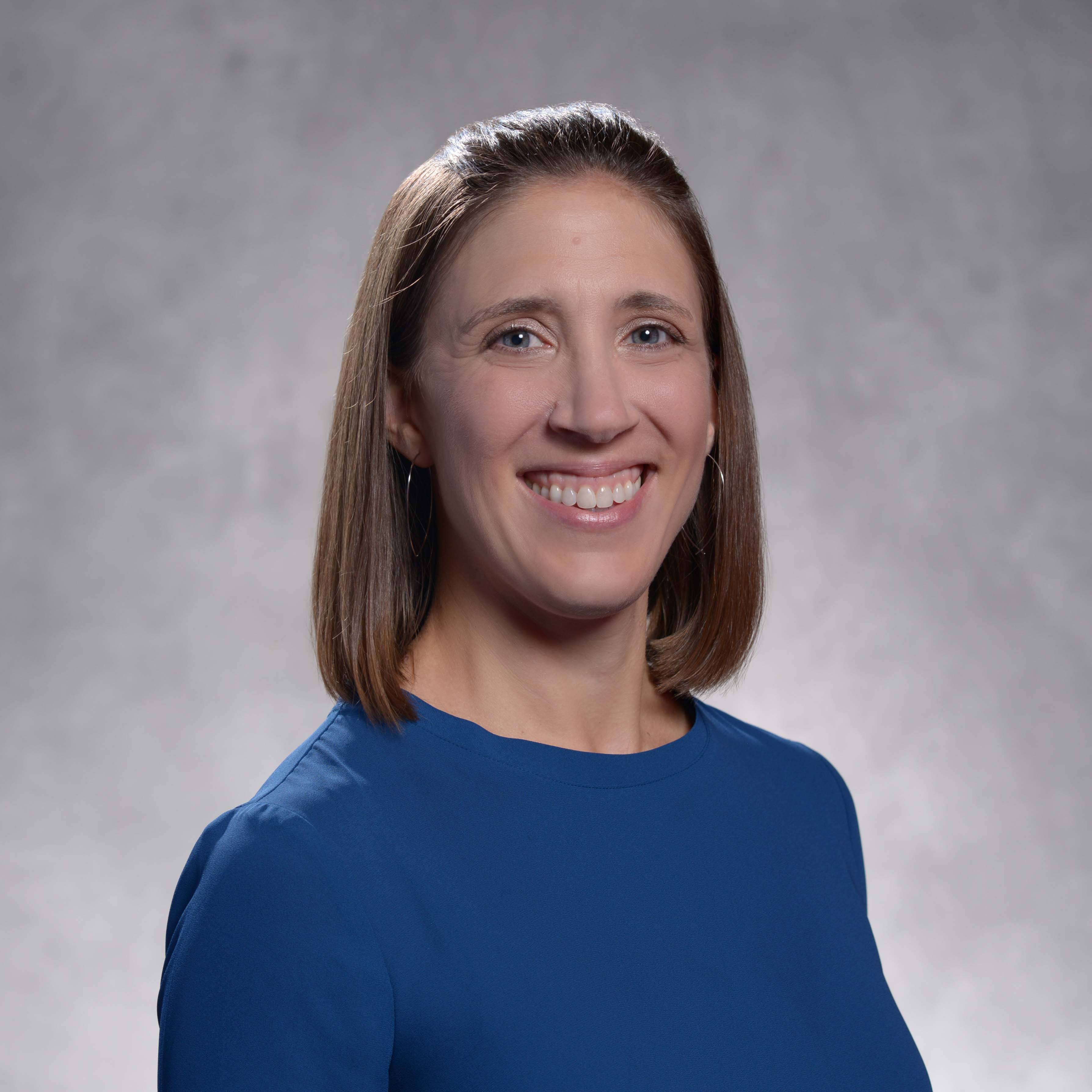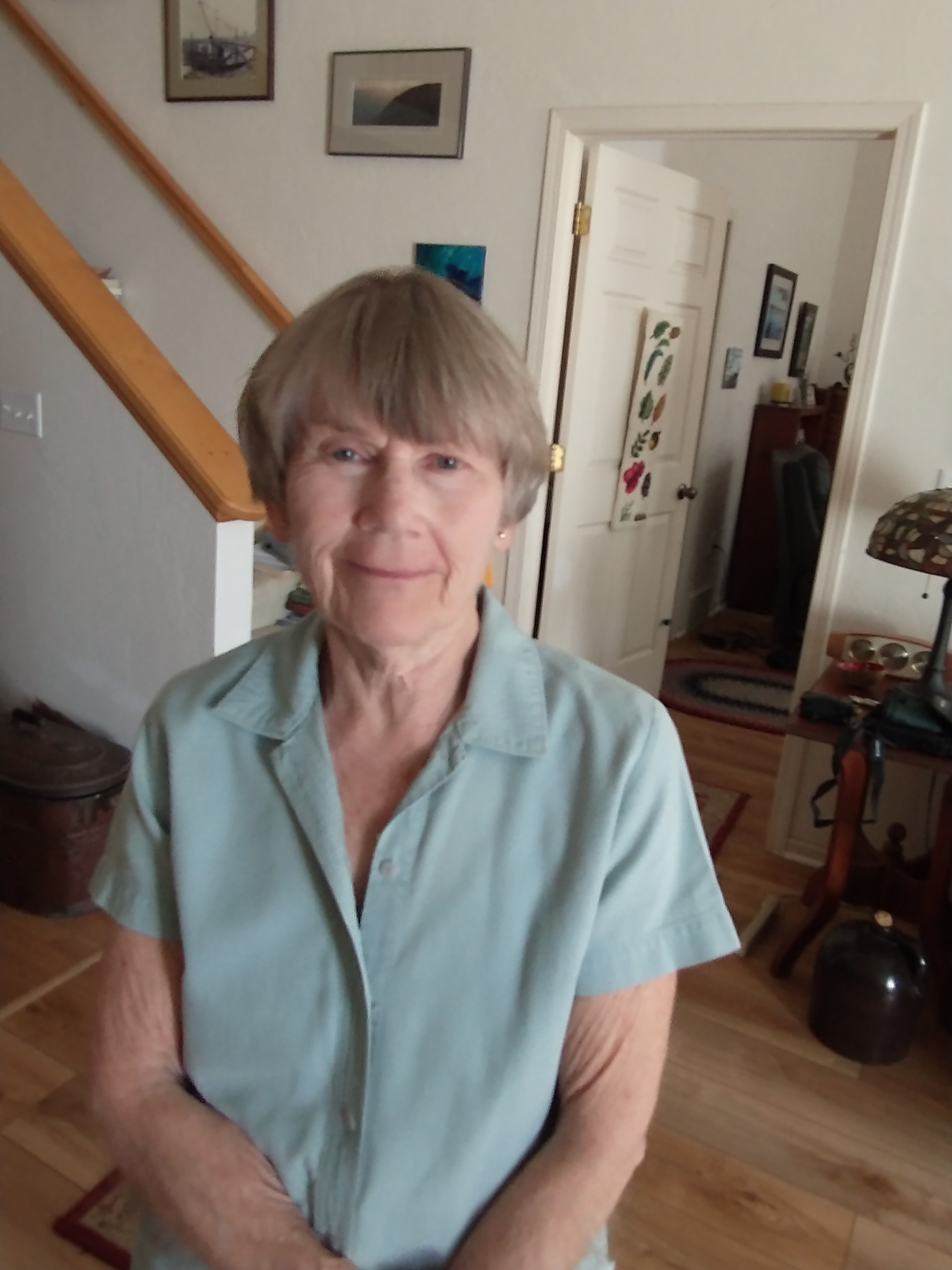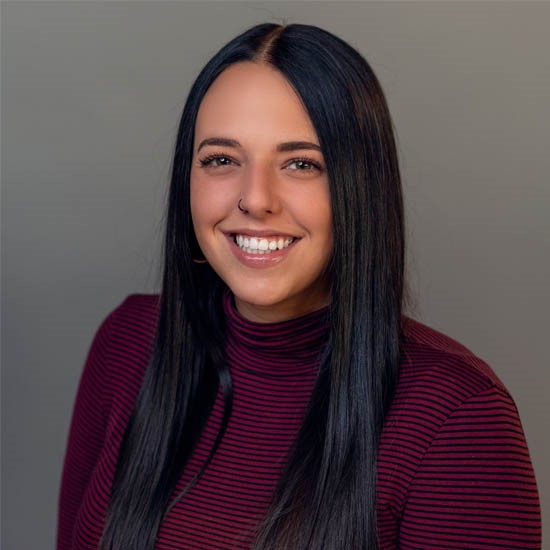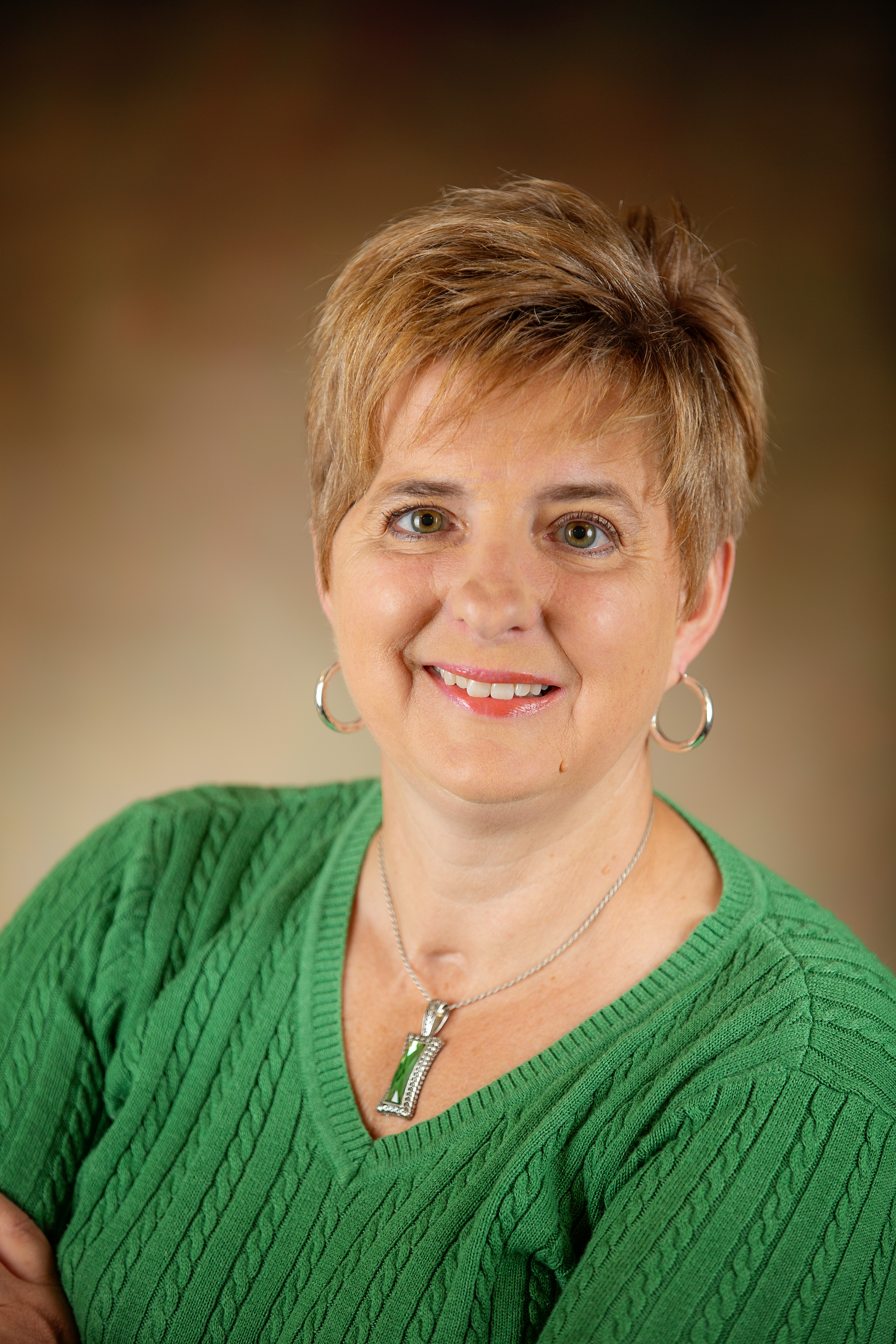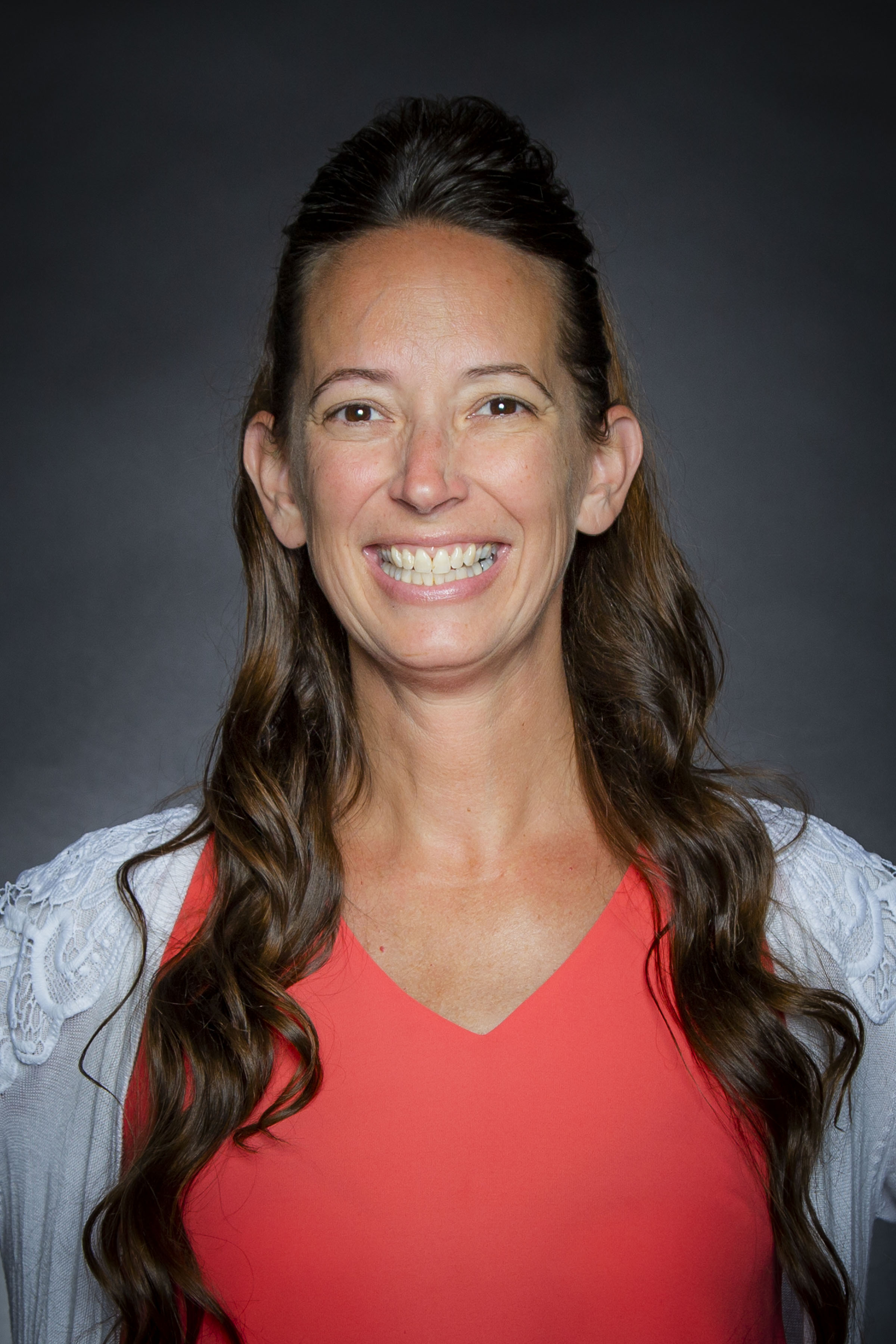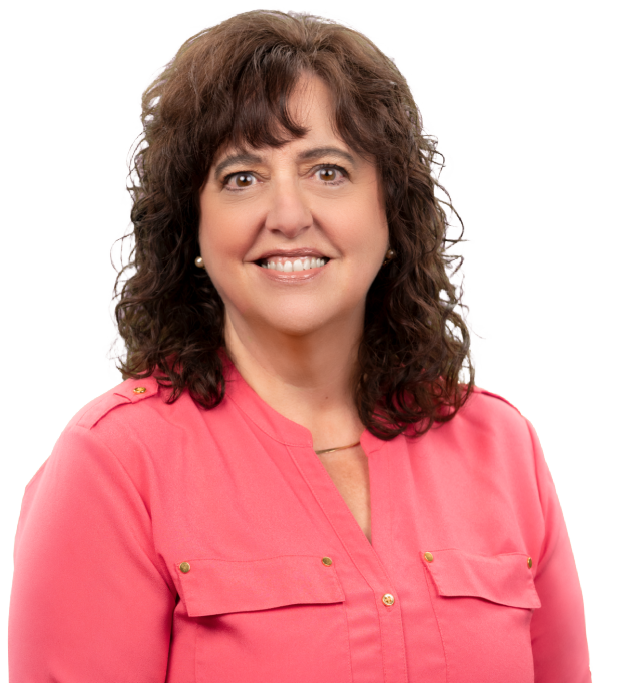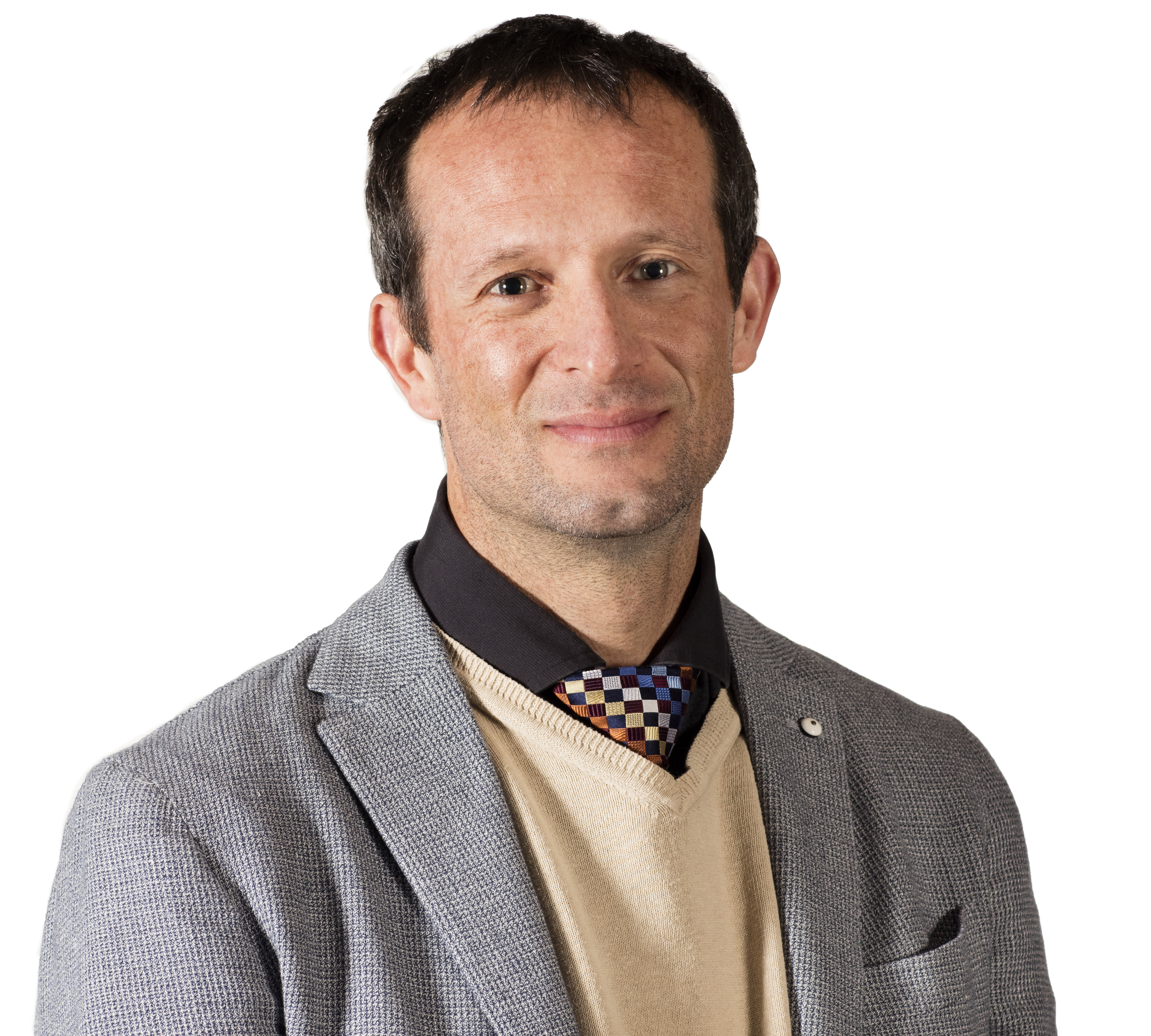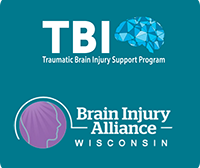
2024 Wisconsin Brain Injury Conference
Tapestry of Brain Injury: Trauma, Social Determinants, and Lifelong Perspectives
The Brain Injury Alliance of Wisconsin, SOAR Fox Cities, and the UW–Madison Interprofessional Continuing Education Partnership are joining again to plan this year's 35th Annual Wisconsin Conference on Brain Injury. Our conference will be in-person again at the Wilderness Resort in the Wisconsin Dells.
Thoughts from our 2023 participants:
|
Practice Gap and Needs
The Center for Disease Control estimates 2.8 million Americans experience a traumatic brain injury (TBI) each year (CDC 2017). One of the common threads among TBI survivors is the experience of trauma. Trauma can result from numerous things such as injury due to military conflicts, participating in sporting activities, intimate partner violence and assault, motor vehicle accidents, and falls, especially among the active yet aging population. In addition, survivors and their family members routinely experience additional traumas following a TBI such as ambiguous losses (e.g., identity), companionship, income/employment, support networks, and friends.
Supports for employment, mental and physical health for TBI survivors, as well as screening has expanded. TBI Research continually generates new insights and treatment options. Growth in TBI survivor supports and research creates a knowledge gap among healthcare professionals, and TBI survivors, caregivers, and their family members.
Elements of Competence
This educational activity is designed to change learner competence and focuses on the following competencies:
- Accreditation Council for Graduate Medical Education (ACGME)/Nursing: Medical Knowledge and Systems-based Practice
- National Academy of Medicine (NAM)/Nursing: Provide Patient/Person-Centered Care
- Center for the Advancement of Pharmacy Education (CAPE): Population-Based Care
- Interprofessional Education Collaborative Competencies: Interprofessional Communication
- Diversity, Equity, and Inclusion: Engage in Self-Reflection
Intended Audience
This conference is intended for physicians, advance practice nurses, physician assistants, nurses, psychologists, social workers, researchers, brain injury survivors, caregivers, family members, and others with interest in traumatic brain injury.
Global Learning Objectives
As a result of participating in this conference, members of the healthcare team, individuals with a brain injury, caregivers and family members will be able to:
- Describe the lifelong challenges that affect a person with a brain injury.
- Explain treatment options available to people affected by brain injury, how to access them, and make the best use of them.
- Discuss the roles and responsibilities of interprofessional healthcare team members who care for brain injury survivors.
- Apply best practices for brain injury treatment to their clinical practice.
- Discuss how culture, assumptions, stereotypes, biases, and past traumas affect medical decision making.
Thank you to our Sponsors and Exhibitors
Sponsors
The University of Wisconsin–Madison Interprofessional Continuing Education Partnership (ICEP), the Brain Injury Alliance of Wisconsin, and SOAR Fox Cities gratefully acknowledges the financial support from Abbott, AbbVie Inc., Brian Hodgkiss Injury Lawyers, Guelzow & Ellefson, Habush Habush & Rottier, Mind-Eye Institute, Neuroscience Group, Rotary Club of Eau Claire, WI, and the Wisconsin Department of Public Instruction.
Exhibitors
Abbott, AbbVie Inc., Book Nook, Brain Injury Alliance of Wisconsin, BRAVE Program (WI Institute of Neuroscience), Clearview Brain Injury Center, Neuroscience Group, SOAR Fox Cities, Inc., the University of Wisconsin-Eau Claire, and Way of the Woods, LLC.
Funding for the TBI Support Program of SOAR Fox Cities is provided by a grant from the Basic Needs Giving Partnership Fund within the Community Foundation for the Fox Valley Region supported by the U.S. Venture Fund for Basic Needs, the J.J. Keller Foundation and other community partners.
Agenda
Monday, May 20, 2024
7:00 AM - 4:00 PM (All times are in CT)
Time (in CT) | Session | Learning Objectives | Room |
| 7:00 - 8:00 AM | Registration, Breakfast Buffet, and Open Exhibits*No continuing education credit is being provided for Registration, Breakfast Buffet, and Exhibits | Wilderness Foyer | |
| 8:00 - 8:15 AM | Welcome & Introduction~ Audrey Nelson, MS *No continuing education credit is being provided for this session | General Session | |
| 8:15 - 9:15 AM | Keynote IFrom Telling the Story to Experiencing the Story of Concussion ~ Sarah Gillespie Thomsen, Former Anchor WBAY |
| General Session |
| 9:15 - 10:15 AM | Keynote IIDon Mickey Memorial Lecture: Advocacy in Medicine ~ Eric Spier, MD, Craig Hospital, Denver, CO |
| General Session |
| 10:15 - 10:30 AM | Break and Exhibits | ||
| 10:30 - 11:30 AM | Breakout Sessions I | ||
Understanding the Impact of Adverse Childhood Experiences and Early Life Stress on Outcome After TBI ~ Dmitry Esterov, MD, Mayo Clinic Model System |
| General Session | |
Returning to Learn following Brain Injury in Children ~ Jennifer Lundine, PhD, Ohio State University, Columbus, OH |
| Glacier A/B | |
| 11:30 AM - 12:30 PM | Breakout Sessions II | ||
The Power of Peers ~ Jerry Hoepner, PhD-CSD Program, UWEC, Lisa Monopoli & George Chapko, BBIG Support Group |
| General Session | |
The Emotional Impact of Concussion & Brain Injury ~ Julie Schwamb Feil, MSW, LCSW |
| Glacier A/B | |
Healthy Habits to Create, Maintain, and Heal Our Brain ~ Kathie Rotz, BrainHealth Licensed Trainer |
| Glacier C | |
| 12:30 - 1:30 PM | Lunch & Open Exhibits | ||
| 1:30 - 2:00 PM | Survivor Panel~ Lori Peterson & Michelle Logeman |
| General Session |
| 2:00 - 2:30 PM | Family Panel~ Ross Christianson & Albin Peterson | ||
| 2:30 - 2:45 PM | Panel Questions | ||
| 2:45 - 3:00 PM | Break and Exhibits | ||
| 3:00 - 4:00 PM | Breakout Sessions III | ||
Homelessness and Brain Injury: What do we know? ~ Tom Tatlock, MD, Kathy Connolly, PhD, Diane Mandler, MSW, and Lauren Moen |
| General Session | |
Ancient Wisdom for Health and Well-Being in Nature ~ Karen Casey, FCSE, HFE, MBE - Earth & Nature Therapy Guide |
| Glacier C | |
Storytelling: It's Yours to Tell ~ Lori Peterson & Kathryn Paulson |
| Glacier A/B | |
Tuesday, May 21, 2024
7:00 AM - 12:30 PM (All times are in CT)
Time (in CT) | Session | Learning Objectives | Room |
| 7:00 - 8:00 AM | Registration, Breakfast Buffet, and Open Exhibits*No continuing education credit is being provided for this session | Wilderness Foyer | |
| 8:00 - 8:30 AM | Welcome & Updates~ Benjamin Siebert, MD, Neuroscience Group, Appleton, WI *No continuing education credit is being provided for this session | General Session | |
| 8:30 - 9:30 AM | Keynote IIIUse of Core 4 Engagement Practices for Individuals Living with Brain Injury and other Neurocognitive Disorders ~ Erwin Concepcion, PhD, Minnesota DHS, MN |
| General Session |
| 9:30 - 10:30 AM | Keynote IVKids and Brain Injury: Rehabilitation and Beyond ~ Shane Dangerfield, MD, University of Utah, UT |
| General Session |
| 10:30 - 10:45 AM | Break and Exhibits | ||
| 10:45 - 11:45 AM | Breakout Sessions IV | ||
Pediatric Focus: Next Steps in Wisconsin ~ Jenny Lundine, PhD, OSU, OH & Shane Dangerfield, MD, University of Utah, UT |
| General Session | |
Infographics: Another Way To Tell Your Story ~ Audrey Nelson, MS & Kathryn Paulson |
| Glacier A/B | |
| 11:45 AM - 12:00 PM | Break and Exhibits | ||
| 12:00 - 12:30 PM | ConclusionReflection and Summary of Key Points of Conference ~ Ben Siebert, MD & Audrey Nelson, MS |
| General Session |
Program Changes
Emergency situations occasionally occur and may necessitate topic or speaker changes. The Brain Injury Alliance of Wisconsin, SOAR Fox Cities, Inc., and the University of Wisconsin–Madison ICEP reserve the right to alter or substitute a topic or speaker without prior notification.

Rooms at the Wilderness Resort
Discounted Rooms Available at the Wilderness Resort (Reserve by April 19th). Call 1-800-867-WILD (9453) and ask for Leader #A45673. The rate is $109 plus taxes and a $29.95 resort fee.
Speakers
Karen Casey, FCSE, HFE, MBE, TBI Survivor | Karen Casey, FCSE, HFE, MBE, TBI Survivor, Certified Nature Therapist I grew up in Western Wisconsin, and earned a teaching degree in Family & Consumer Science Education, Health & Fitness Education and concentrations in Psychology and Human Development & Family Studies. I was involved in two high speed car accidents that left me with a Traumatic Brain Injury. These two accidents ended my K-12 teaching career. Even though my life has completely changed, my passion has not. I continue to posses an innate desire and sincere interest in guiding others to understand they have the power within to heal, especially through nature and forest therapy. Therefore, I recently received certification as an Earth & Nature Therapy Guide. |
George Chapko Jr., BBIG Support Group | George Chapko Jr., BBIG Support Group My name is George Chapko, I had a stroke 10 years ago in 2014 at the age of 41. Before my stroke I was a process specialist for a computer hard drive component factory where we worked building hard drive read/write heads. I was also a cook and a security guard before that. My educational background is I have a two-year associates degree in police science and protective services, but after my stroke, it was no longer an option for me to pursue. I’m also a dad of a beautiful 17 yr old young lady who is my life and the biggest motivator in becoming as much a productive member of society as possible with my goal is to be the best dad I can be. My stroke changed my life in a matter of seconds but with a lot of hard work, I’m back to being close to what I was before my acquired brain injury. I found that my brain injury support groups were a huge factor in changing my mindset in life. I call them my extended family, as they have always been there for me and have lifted me up. With their guidance, I feel like life has turned around and I am ready to conquer and overcome everything that comes at me in my present and future. They have become role models to me and have shown me the power that groups can have. I very much look forward to presenting in the small group at The Power of Peers...thank you for the opportunity. |
Ross Christianson | Ross Christianson As a devoted father of three, my life took a turn when my youngest son endured a traumatic brain injury in 2015. Since then, I've dedicated myself to his recovery and advocacy, navigating the complexities of social dynamics, legalities, and financial challenges. Born and raised on a Wisconsin dairy farm, my roots in the Midwest shaped my work ethic and values. I pursued an education at UW Stout, which led to a fulfilling 30-year career in Industrial Technology in Central Minnesota, where I also raised my family. In recent years, I've returned to Wisconsin, contributing over a decade of expertise to the medical device sector in the Twin Cities, all while standing steadily (but shaken at times) by my son's side. |
Erwin Concepcion, PhD, Minnesota DHS | Erwin Concepcion, PhD, Minnesota DHS Dr. Erwin Concepcion has over 20 years of clinical and administrative experience in psychology. Dr. Concepcion has specialized in clinical consultation and practice focusing on individuals with mental health conditions who also present with co-occurring conditions related to brain injury and substance use disorders. He has practiced in a variety of care settings including physical medicine and rehabilitation, outpatient mental health, medical centers, and state psychiatric programs. Currently, Dr. Concepcion is involved in helping to bridge DHS State Operated Services and the Department’s Adult Mental Health policy division in implementing best practices. |
Kathleen Connolly | Kathleen Connolly Kathy Connolly has worked with victims of domestic abuse for over thirty years. She has seen brain injury in victims of domestic abuse and sought to find services for them. Although retired, she currently serves on BRAIN Fox Valley and continues to educate the community regarding brain injury and seek to find resources to meet the needs of persons struggling with brain injury. |
Shane Dangerfield, MD | Shane Dangerfield, MD Shane Dangerfield, M.D. is an Assistant Professor of Pediatrics at the University of Utah where he serves as a Pediatric Physical Medicine and Rehabilitation specialist, as well as the Medical Director of the Spina Bifida program. Dr. Dangerfield received his undergraduate education in Biochemistry at the University of Utah and his Medical Degree from Wayne State University School of Medicine in Detroit Michigan where he was the recipient of the Physical Medicine and Rehabilitation Student Achievement Award. He then completed a combined Pediatric and PM&R residency through Wayne State University and the Detroit Medical Center and was a representative for his program on the Resident Council. His clinical and research interests include chronic management of children with severe disability with a focus on spasticity management, pain, orthotics, and quality of life. |
Dmitry Esterov, MD - Mayo Clinic Model System | Dmitry Esterov, MD - Mayo Clinic Model System Dmitry Esterov, M.D., is an Assistant Professor of Physical Medicine and Rehabilitation, with specialty interest in Neurological Rehabilitation including the rehabilitation of individuals with Traumatic and Acquired Brain Injury, through the spectrum of disease severity. Dr. Esterov is an integral participant in the PM&R Resident and Fellowship program. He provides one-on-one training to learners for areas in Brain Injury, Neuromuscular Disorders, Spasticity Management, and Inpatient Rehabilitation. He is part of the Brain Rehab Core Curriculum Committee, creating and revising the curriculum and lectures for incoming residents and fellows. Along with his clinical practice and education responsibilities, Dr. Esterov also has presented as an expert across the United States and world-wide on subjects such as: Mood and Anxiety Disorders after Pediatric Traumatic Brain Injury |
Jerry Hoepner, PhD, CCC-SLP, ASHA Fellow |
Jerry Hoepner, PhD, CCC-SLP, ASHA Fellow Dr. Jerry Hoepner is a Professor at the University of Wisconsin - Eau Claire, Department of Communication Sciences and Disorders. He began teaching for UWEC CSD in 2003. He teaches courses in anatomy and physiology, undergraduate research, acquired cognitive disorders, dysphagia, and counseling. His research addresses healthcare perceptions, video self-modeling interventions for persons with acquired language or cognitive disorders, counseling methods and training, undergraduate research, non-course based learning, and instructional pedagogies. He is a founding editor of Teaching and Learning in Communication Sciences and Disorders (TLCSD) and editorial board member for Clinical Archives of Communication Disorders (CACD). He is an Aphasia Access affiliate and interviewer for the Aphasia Access Conversations Podcast series. He is a co-founder of the UWEC CSD SoTL Lab (scholarship of teaching and learning research). He continues to have a regular role in clinical contexts and supervision. He is a co-founder of the Chippewa Valley Aphasia Camp, co-founder of the Mayo Brain Injury Group, and founder of the Blugold Brain Injury Group. He also co-facilitates a Thursday Poetry Group for people with brain injuries and aphasia. Outside of work, Jerry is an avid outdoors person and enjoys traveling/spending time with his family. |
Audrey Nelson, MS | Audrey Nelson, MS In 1981 Audrey experienced a brain Injury in a car accident during her Freshman year of college; she was 18. In 1983, she was a co-founder and facilitator of a brain injury support group in Eau Claire that met for over 30 years. Audrey earned a Bachelor of Social Work (BSW) in 1987 and subsequently, a Graduate degree in Vocational Rehabilitation in 1994. Since 1985, she has had several different roles on the board of directors of the Brain Injury Alliance of Wisconsin. She also currently serves on the Mayo Clinic Brain Injury Advisory Board. Audrey began Reality Unlimited, LLC in 1995, providing residential care for individuals with brain injury. She recently sold this company and is looking forward to the next chapter in her work in brain injury advocacy. One of her most exciting projects was started in 2020, a brain injury & poetry support group that recently published a book of poetry. She is the mother of 3 adult children and recently, a proud grandmother who loves to spend time with her family. |
Michelle Logeman | Michelle Logeman My name is Michelle Logemann, and I sustained a severe traumatic brain injury in December 2001 while driving to work. A parolee was high on cocaine and ran a red light, broadsiding me on my driver’s side door. My injuries were extensive, I coded several times, needed 3 transfusions, and was seven months pregnant at the time – thus needing an emergency c-section. Twelve hours later, my baby passed away from blunt force trauma, and I was in a coma, with little hope for survival, let alone an independent life. While miraculous, my recovery has been a journey of both victories and defeats. As my amnesia faded and mobility returned, I realized everything that had been taken away from me – my son, my career, my mental abilities, my ability to interact appropriately in social situations, etc... I became obsessed with “getting back to who I was”. Coming to peace with the fact that I would never be that person again, and learning to appreciate who I had become, has been the most valuable part of my ongoing recovery. I hope that the insights I have gained over the past twenty-two years will be helpful to others. |
Jenny Lundine, PhD, CCC-SLP, BC-ANCDS | Jenny Lundine, PhD, CCC-SLP, BC-ANCDS Jennifer P. Lundine, PhD, CCC-SLP, BC-ANCDS, is an Associate Professor in the Department of Speech and Hearing Science at The Ohio State University and a clinical researcher at Nationwide Children’s Hospital, in Columbus, Ohio. She has over a decade of experience working as a speech-language pathologist on a pediatric rehabilitation unit. Her clinical, teaching, and research interests include cognitive-communication disorders associated with complex pediatric medical conditions, such as acquired brain injury (ABI). Specifically, her research focuses on improving gaps in access to and utilization of services designed to support children and adolescents with ABI and identifying specific approaches that would improve assessment and treatment practices following pediatric ABI. |
Diane Mandler | Diane Mandler Diane worked in county mental health for almost 40 years. She was a clinical social worker who specialized in the provision of crisis services. Prior to retirement she became involved in the Community Foundation for the Fox Valley Region’s exploration of brain injuries in the local community. BRAIN Fox Valley was organized to address the issue of how the community could better serve those with brain injuries. When Diane retired she continued with BRAIN Fox Valley. Currently Diane and Kathy Conolly co chair the group. |
Lauren Moen, BSW | Lauren Moen, BSW As Pillars Crisis Housing Manager, Lauren’s role is to oversee shelter programming, day-to-day operations, and basic needs-related services for clients experiencing homelessness whose barriers include alcohol and drug addictions, mental health challenges, and employment and housing struggles. She joined the Fox Valley Warming Shelter in the fall of 2016 as shelter manager and has remained in that role through the transition of the Merger to Pillars Adult Shelter and Pillars Resource Center. She has worked in group homes with high-barrier youth and at women’s domestic violence and sexual assault homeless centers while in college. Lauren has worked with the unhoused population for over 10 years. Lauren graduated from the University of Wisconsin Stevens Point with bachelor’s degrees in social work and sociology and a minor in women’s gender studies. She points to watching clients make forward progress, flourish, and become proud of themselves as her favorite part of her job. Lauren finds it rewarding when the men and women who come to Pillars Adult Shelter make advances in learning basic life skills, improving their mental and physical health, and obtaining work, income, and housing, and becoming self sufficient out in the community. |
Lisa Monopoli | Lisa Monopoli, TBI Survivor/Warrior I am a face of Brain Injury. My name is Lisa Monopoli. Nurturing is a big part of who I am. A mother of three productive adults, and three beautiful grandchildren. I’ve worked with children, most of my life in various settings. Our home was always a gathering place for my children and their friends. I was a hairdresser by trade. My first traumatic brain injury (TBI) happened at age 16. I was thrown head first through the side door window of a car. Splitting my forehead open, followed by banging the back of my head on the curb repeatedly because my body was in shock. This closed brain injury, led to memory loss, seizure disorder, inner ear concussion, and more. Five years later, I was dragged by a pick up truck causing a second TBI. The back tires ran over my mid section, causing neck and lower back trauma, bursitis, a rotating pelvis, and extensive road rash. Doctors mistakenly declared my brain injury was healed shortly thereafter. I spent many years ignoring my pain, pushing my body and mind beyond their limits with the thought of being healed. I’ve had more surgeries than I care to recollect. I continue to live each day in chronic pain. Brain injury “flooding,” sensory overload resulting from too much information for the brain to organize and process, led to embarrassment, shame, guilt, and more. A house full of people just talking and doing life led to overstimulation and random verbal outbursts, followed by seizures. My journey has been long and continuous. Poetry has been healing for me, like peeling back the layers of an onion. I found people who love me as I am. I enjoy writing poetry with like minded survivors. I am both humbled and grateful to be asked to speak. |
Katie Paulson | Kathryn Paulson, TBI Survivor My name is Kathryn Paulson. I am a seven year TBI survivor. I fell on black ice, fractured my skull and had a subarachnoid hemorrhage on the temporal lobe of my right side. My recovery has included some of the typical therapies, but when I started writing poetry in October of 2020, I began to heal in ways traditional therapy never touched. I feel seen, while regaining an identity as someone other than a person with TBI. Poetry helps me understand myself better and has allowed me to help fellow |
Lori Peterson | Lori Peterson Lori Peterson was born and raised on a small dairy farm in Turtle Lake, WI. She earned AAS in Accounting from Rasmussen School of Business, Minneapolis and her B.S. in Business Administration from the University of Minnesota. Lori served as Executive Director of the American Society of Neurorehabilitation (ASNR) from 1992-2000 while at the American Academy of Neurology and eventually moved with the Society to an independent Association Management Company. Prior to a car accident and resulting in a Traumatic Brain Injury in 2009, Ms. Peterson served as the Vice President of a successful Association Management Company and was Executive Director of several non-profit professional neuroscience for 10+ years including the ASNR, the American Neurological Association (ANA), the Association of University Professors of Neurology (AUPN), and the Organization for Human Brain Mapping (OHBM). Following the accident, she was in a coma for a week at the Mayo Hospital in Eau Claire and remained there for 1 month. As a result of the extensive injuries, Lori was unable to return to my former career, as it required frequent national and international travel, and long hours sometimes in excess of 60 in a fast-paced and high stress environment. After much rehabilitation, she was the Assistant Librarian at the Turtle Lake Public Library for 6+ years (2011-present). Lori loved her career prior to the accident, but Library Science opened new doors for her. Lori resigned, to write and self-publish a personal memoir chronicling her journey back from TBI. With God’s strength, mercy and grace, she has learned how not only to survive TBI, but to thrive from it. She wants to share this good news of hope and inspiration to all who have, will, or are going through a traumatic event that, with enough determination and the will to live, as well as the support of excellent neurotrauma and rehabilitation teams, plus faith in a higher power to hang onto, and the love and support of family and friends, one can not only survive but thrive after anything – even a near fatal brain injury! |
Kathie Rotz, BrainHealth Licensed Trainer | Kathie Rotz, BrainHealth Licensed Trainer Kathie Rotz brings clarity to individuals interested in growth. Her passion is to challenge thinking and behavioral habits so that we all are more efficient and empowered in our life’s mission. Kathie has over 25 years of experience in personal growth and development, as well as a certification in John Maxwell leadership content. She has created onboarding programs, competency framework tools, and leadership initiatives, expanding her skills as a speaker, trainer, and coach. Kathie has partnered with higher education institutions to create a Leadership Academy that aids professionals in personal and team development. |
Julie Schwamb Feil, MSW, LCSW | Julie Schwamb Feil, MSW, LCSW Julie specializes in providing families and individuals living with memory disorders information, resources, education, and supportive counseling. Each person’s journey is unique and can be lengthy, so facilitating education and support groups along the way and coordinating needs as they arise is also a critical aspect of her role on the Neurology team. As a team member of our Concussion Clinic, Julie provides short term counseling and support to those suffering the effects of the trauma of a brain injury or concussion. Her 30 years of experience in the field of medical social work in both hospitals and clinics, have prepared her for understanding and helping individuals with complex medical and social situations,as well as grief and loss associated with the impact of illness. Julie takes a wholistic view and realizes that brain diseases affect the person and the entire family in many ways. “My focus is promoting brain health strategies and maximizing what each person’s strengths are! Listening and focusing on what the person “can” do and maintaining their dignity and the essence of who they are as a person is important to me.” |
Benjamin Siebert, MD, FAAPMR | Benjamin Siebert, MD, FAAPMR Dr. Siebert has found that investing in his patients is an important part of patient care. While keeping a realistic outlook, he tries to help patients focus on what they can achieve and encourages them to keep an optimistic attitude. He has the unique opportunity to be involved in the lives of his patients at all stages of their conditions, which is a challenging yet rewarding responsibility for him. Dr. Siebert has a special interest in traumatic brain injury, headache, and pain. |
Eric Spier, MD | Eric Spier, MD Eric T. Spier, MD, serves as the Brain Injury Program Medical Director and Outpatient Brain Injury Medical Director at Craig Hospital. He also serves as Neurorehabilitation Consultant at St. Anthony’s Hospital in Denver, a Level I Trauma Center. Dr. Spier earned his medical degree from the University of Texas Medical School in Houston and completed his residency at the Yale School of Medicine in New Haven and the Baylor College of Medicine in Houston. He is boarded in Physical Medicine and Rehabilitation (PM&R) and Brain Injury Medicine. He joined the medical staff at Craig Hospital in 2016 after building and serving as the Medical Director for Mentis El Paso, a 24-bed post-acute neurorehabilitation program that served West Texas, New Mexico and surrounding areas. Dr. Spier serves as the Medical Director for the Brain Injury Alliance of Colorado and also serves as the Medical Director for the Board of Governors of the Academy of Certified Brain Injury Specialists. He has co-authored textbook chapters in the field of brain injury medicine. |
Thomas Tatlock, MD | Thomas Tatlock, MD Dr. Tatlock graduated from the University of Kansas School of Medicine, did a straight internal medicine internship, and completed a residency in psychiatry at the University of Wisconsin School of Medicine in Madison, WI. On May 19, 1999, he fell off a ladder and sustained a traumatic brain injury that forced him make an early, involuntary retirement. He has presented on brain injury and the persons who are experiencing homelessness, locally, regionally and nationally. He presented to the national conference of the NHCHC (National Health Care for the Homeless Council) in 2010 and 2011. He served on the Advisory Committee on Adapting Clinical practice for the Care of Homeless Patients with Traumatic Brain Injury for Carolyn Lemskey, PhD who wrote ADAPTING YOUR PRACTICE, Recommendations for the care of Patients, who are Homeless or Unstably Housed Living with the Effects of Traumatic Brain Injury. He is a member of BRAIN-Fox Valley. |
Sarah Thomsen, Former Anchor WBAY | Sarah Thomsen, Former Anchor WBAY Sarah Thomsen joined Action 2 News in March of 2003 as a weekend anchor and news reporter. She became the Action 2 News at 4 anchor when the show launched in 2006. Sarah is a native to the Midwest, growing up in central Iowa. She moved to Wisconsin in 2001, working as a reporter at a La Crosse television station before moving to Green Bay. She earned her electronic media and public relations degree from Wartburg College in Iowa. There, she worked in both the news and sports departments in radio and television, reporting from the sidelines at football and basketball games. When she's not on the anchor desk, Sarah is out in the community, often covering crime or public safety-related stories. She's an award-winning investigative reporter, earning journalism's coveted Edward R. Murrow award for investigative reporting five consecutive years. Sarah has also been recognized with top investigative awards from the Wisconsin Broadcasters Association and multiple Eric Sevareid awards from the Midwest Broadcast Journalists Association. Sarah and her husband, John, married in 2006. They have four young children that keep them on the move! Sarah loves running, biking, and spending time with family and friends and attending her children's sporting events. She's run countless half-marathons but finally crossed a 26.2 mile marathon of her bucket list! Sarah is also a true farm-girl at heart and loves spending time outdoors or on the family farm, even if that means baling hay or fixing fence. Depending on the sports season, you'll catch her in front of the television cheering on her favorite teams: the Packers, the Cubs, and the Iowa Hawkeyes. |
Planning Committee
Audrey Nelson, MS* | Michael Lace, PhD |
Erin Schultz-Wege, MSW, Executive Director * | Sasha St. John, BS, Brain Injury Survivor |
| Caroline Feller | Benjamin Siebert, MD, FAAPMR |
| Jerry Hoepner, PhD, CCC-SLP, ASHA Fellow | Traci Snedden, PhD, RN, Assistant Professor |
*Conference Co-Chairs
Policy on Disclosure
It is the policy of the University of Wisconsin–Madison Interprofessional Continuing Education Partnership (ICEP) to identify, mitigate and disclose all relevant financial relationships with ineligible companies* held by the speakers/presenters, authors, planners, and other persons who may influence content of this accredited continuing education (CE). In addition, speakers, presenters and authors must disclose any planned discussion of unlabeled/unapproved uses of drugs or devices during their presentation.
For this accredited continuing education activity all relevant financial relationships have been mitigated and detailed disclosures are listed below.
*Ineligible companies are those whose primary business is producing, marketing, selling, re-selling, or distributing healthcare products used by or on, patients.
The ACCME does not consider providers of clinical services directly to patients to be ineligible companies.
Name | Role | Financial Relationship Disclosures | Discussion of Unlabeled/ Unapproved uses of drugs/devices in presentation? |
Nina Berge | Committee Member | No relevant relationships with ineligible companies to disclose | No |
Karen Casey | Speaker/Author | No relevant relationships with ineligible companies to disclose | No |
George Chapko | Speaker/Author | No relevant relationships with ineligible companies to disclose | No |
Ross Christianson | Speaker/Author | No relevant relationships with ineligible companies to disclose | No |
| Erwin Concepcion | Speaker/Author | No relevant relationships with ineligible companies to disclose | No |
Kathy Connolly | Speaker/Author | No relevant relationships with ineligible companies to disclose | No |
| Shane Dangerfield | Speaker/Author | No relevant relationships with ineligible companies to disclose | No |
| Dmitry Esterov | Speaker/Author | No relevant relationships with ineligible companies to disclose | No |
| Caroline Feller | Planner | No relevant relationships with ineligible companies to disclose | Yes |
Sue Gaard | Committee Member | No relevant relationships with ineligible companies to disclose | No |
| Emily Haarsma | Committee Member | No relevant relationships with ineligible companies to disclose | No |
| Jerry Hoepner | Planner | No relevant relationships with ineligible companies to disclose | No |
Michael Lace | Planner | No relevant relationships with ineligible companies to disclose | No |
| Michelle Logeman | Speaker/Author | No relevant relationships with ineligible companies to disclose | No |
| Jenny Lundine | Speaker/Author | No relevant relationships with ineligible companies to disclose | No |
| Diane Mandler | Speaker/Author | No relevant relationships with ineligible companies to disclose | No |
| Lauren Moen | Speaker/Author | No relevant relationships with ineligible companies to disclose | No |
| Lisa Monopoli | Speaker/Author | No relevant relationships with ineligible companies to disclose | No |
Tracy Mrochek | Committee Member | No relevant relationships with ineligible companies to disclose | No |
Audrey Nelson | Course Director, Planner, Speaker/Author | No relevant relationships with ineligible companies to disclose | No |
| Katie Paulson | Speaker/Author | No relevant relationships with ineligible companies to disclose | No |
| Albin Peterson | Speaker/Author | No relevant relationships with ineligible companies to disclose | No |
| Lori Peterson | Speaker/Author | No relevant relationships with ineligible companies to disclose | No |
| Rob Poehnelt | Committee Member | No relevant relationships with ineligible companies to disclose | No |
Kathie Rotz | Speaker/Author | No relevant relationships with ineligible companies to disclose | No |
Erin Schultz-Wege | Course Director, Planner | No relevant relationships with ineligible companies to disclose | No |
Julie Schwamb Feil | Speaker/Author | No relevant relationships with ineligible companies to disclose | No |
Benjamin Siebert | Planner/Speaker | No relevant relationships with ineligible companies to disclose | No |
Traci Snedden | Planner | No relevant relationships with ineligible companies to disclose | No |
Eric Spier | Speaker/Author | No relevant relationships with ineligible companies to disclose | Yes |
Sasha St. John | Planner, Speaker/Author | No relevant relationships with ineligible companies to disclose | No |
| Tom Tatlock | Planner, Speaker/Author | No relevant relationships with ineligible companies to disclose | No |
| Sarah Gillespie Thomsen | Planner, Speaker/Author | No relevant relationships with ineligible companies to disclose | No |
Accreditation Statement
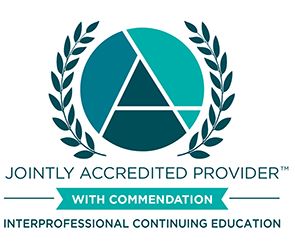 | In support of improving patient care, this activity has been planned and implemented by the University of Wisconsin–Madison ICEP, the Brain Injury Alliance of Wisconsin, and SOAR Fox Cities. The University of Wisconsin–Madison ICEP is jointly accredited by the Accreditation Council for Continuing Medical Education (ACCME), the Accreditation Council for Pharmacy Education (ACPE), and the American Nurses Credentialing Center (ANCC), to provide continuing education for the healthcare team. |
Credit Designation Statements
American Medical Association (AMA)
The University of Wisconsin–Madison ICEP designates this live activity for a maximum of 9.75 AMA PRA Category 1 Credit™. Physicians should claim only the credit commensurate with the extent of their participation in the activity.
American Nurses Credentialing Center (ANCC)
The University of Wisconsin–Madison ICEP designates this live activity for a maximum of 9.75 ANCC contact hours.
ASWB Approved Continuing Education (ACE)
As a Jointly Accredited Organization, the University of Wisconsin–Madison ICEP is approved to offer social work continuing education by the Association of Social Work Boards (ASWB) Approved Continuing Education (ACE) program. Organizations, not individual courses, are approved under this program. State and provincial regulatory boards have the final authority to determine whether an individual course may be accepted for continuing education credit. University of Wisconsin–Madison ICEP maintains responsibility for this course. Social workers completing this course receive 9.75 general continuing education credits.
American Psychological Association (APA)
 | Continuing Education (CE) credits for psychologists are provided through the co-sponsorship of the American Psychological Association (APA) Office of Continuing Education in Psychology (CEP). The APA CEP Office maintains responsibility for the content of the programs. |
Continuing Education Units (CEUs)
The University of Wisconsin–Madison ICEP, as a member of the University Professional & Continuing Education Association (UPCEA), authorizes this in person, live activity for .975 continuing education units (CEUs) or 9.75 hours.
Available Credit
- 9.75 AMA PRA Category 1 Credit™
- 9.75 ANCC Contact Hours
- 9.75 APA CE Credits
- 9.75 University of Wisconsin–Madison Continuing Education Hours
- 9.75 Approved for AMA PRA Category 1 Credit™
Interested in Sponsoring this Conference or Being an Exhibitor?
Audrey Nelson, MS, BSW, Executive Director, Brain Injury Alliance of Wisconsin
Questions?
Registration
Conference Information
Audrey Nelson, MS, BSW, Executive Director, Brain Injury Alliance of Wisconsin
Erin Schultz, MSW, Executive Director, SOAR Fox Cities, Inc.
Registration for this activity can only be completed through the ICEP Learning Portal. Attendee registrations made through any other sites cannot be honored. UW-Madison ICEP is not able to refund fees paid through unaffiliated registration sites, such as eMedEvents.com, MedConfWorld.com, EventEgg.com, and 10times.com. Please report any unauthorized websites or solicitations for registrations to [email protected].
Accessibility
The University of Wisconsin provides equal opportunities in employment and programming, including Title IX requirements. The University of Wisconsin fully complies with the legal requirements of the ADA and the rules and regulations thereof. If any participant in this educational activity is in need of accommodations, please contact [email protected].

 Facebook
Facebook X
X LinkedIn
LinkedIn Forward
Forward
